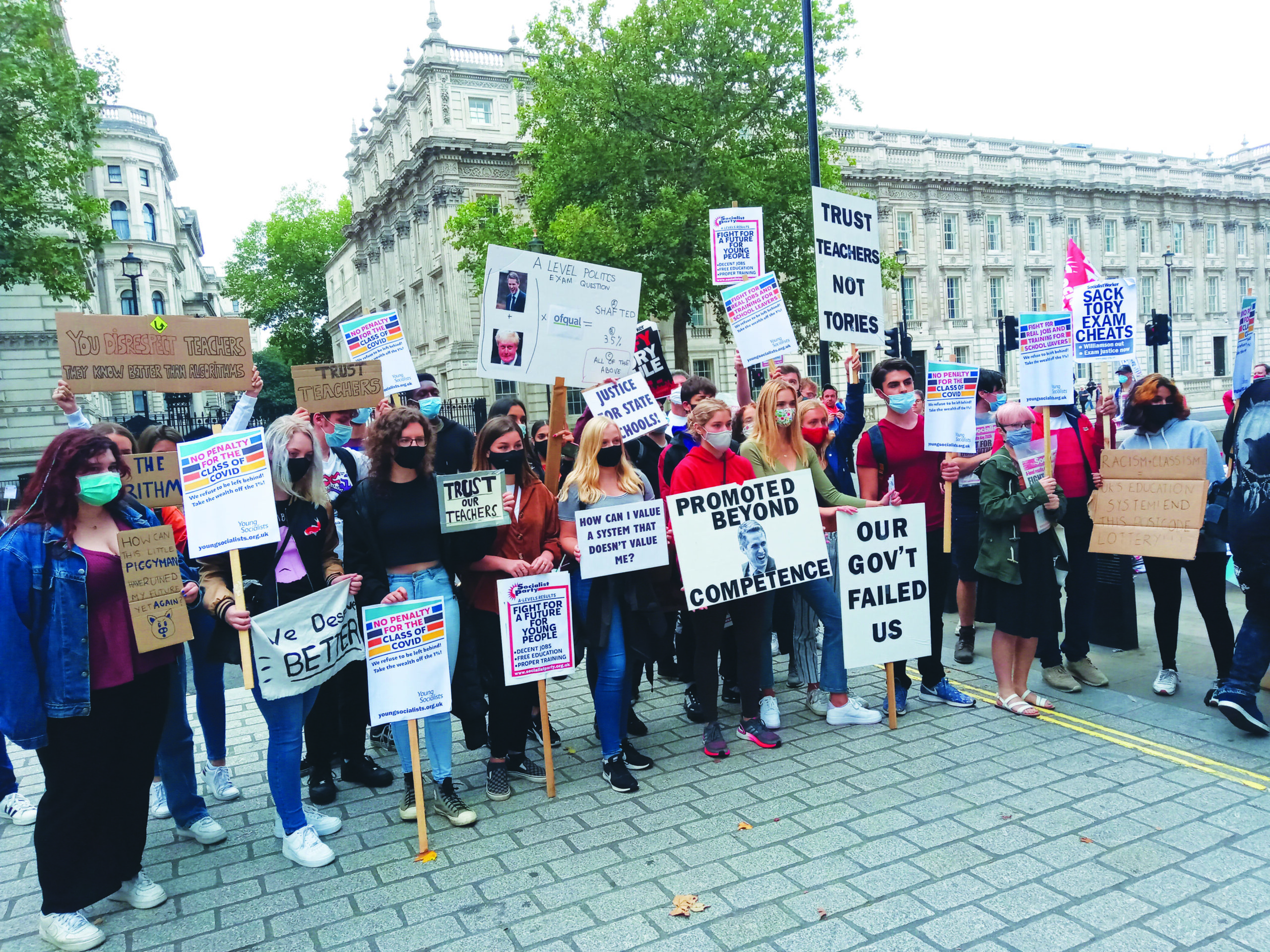Fund our schools
Evita Nazari, sixth form student, West London Socialist Party
After a tumultuous two years of studying during a pandemic, students across the country finally received their teacher-assessed results on 10 and 12 of August. Many experienced joy at their results, while others missed out on the top grades they needed. However, a clear pattern emerged: those rejoicing at grades were disproportionately from private schools.
61% of private school students received GCSE grades at 7, 8 and 9, which is in stark contrast to the 23% of students in comprehensive schools. This pattern is repeated in A level results as well: 70% of private school students acquired A or A* grades, while only 39% of students at comprehensive schools received the top marks.
This year saw more students getting the top grades. But that didn’t close the gap! Private schools experienced an increase of 14.6%, while for state schools it was around 7%.
The grade gap between private and state schools has increased further during the pandemic. The introduction of teacher-assessed grades increases the opportunities for parents to pressure teachers. A study from the charity Sutton Trust found that in private schools, 23% of teachers experienced interference from parents, compared to just 11% in state schools.
Furthermore, the closure of schools to most students due to Covid-19, and commencement of online learning have highlighted that students from state schools are less likely to have access to, or have to share, technology. Lack of correct equipment at home has hindered, thousands of working-class students’ from studying, and limited their potential to achieve the top grades.
A major problem fuelling grade inequality is that state schools are underfunded.
This year’s results just prove that, under a Conservative government representing the super-rich, going to private school is more important than intellect when it comes to achieving great results.









